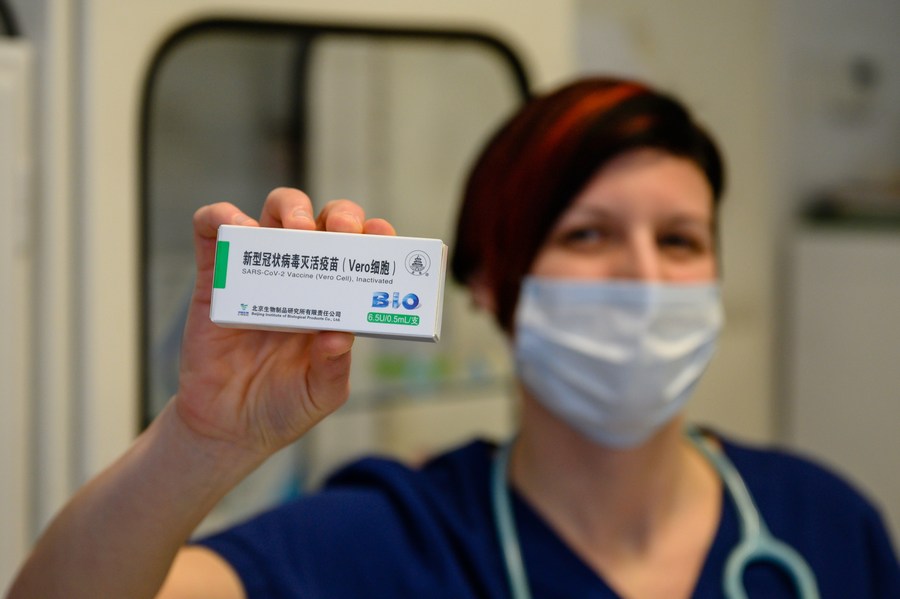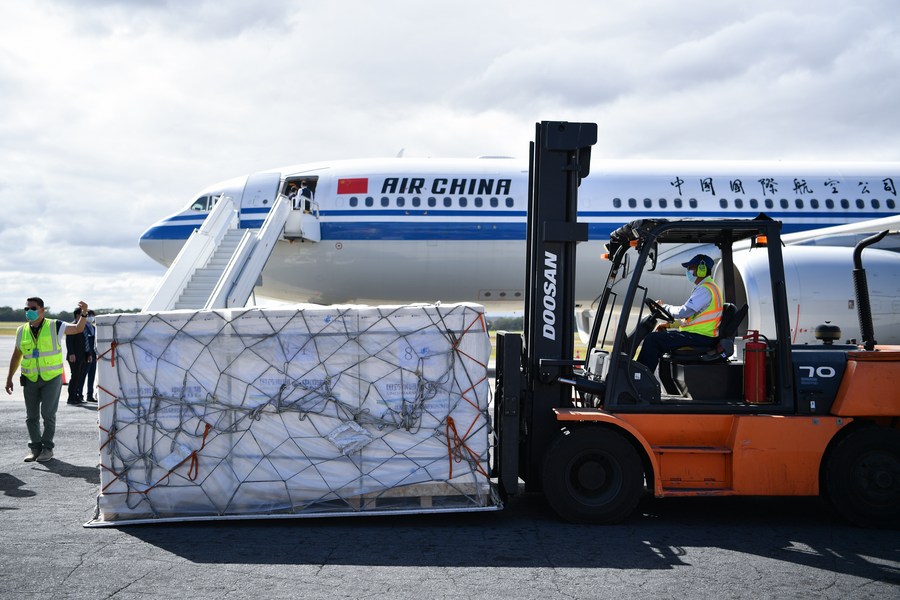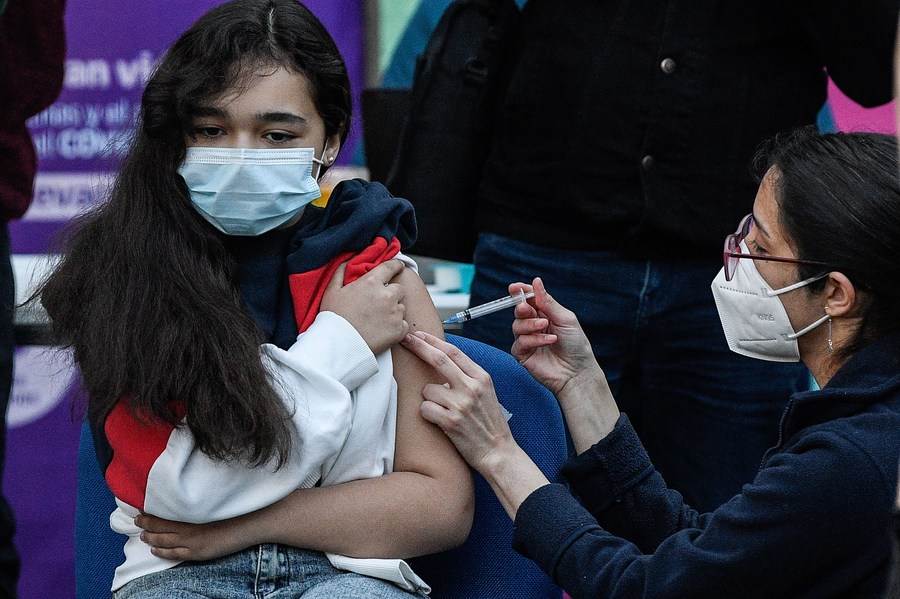Sinopharm, Sinovac important part of COVAX vaccine initiative: WHO

A family doctor shows a box of the Sinopharm COVID-19 vaccine in Varoslod, Hungary on Feb. 24, 2021. (Tamas Vasvari/MTI via Xinhua)
Also on Jan 6, executive director of WHO's Health Emergencies Program Mike Ryan said there is no increased risk of COVID-19 transmission at the upcoming Beijing Winter Olympic Games, as preventive measures by the Chinese authorities have been very "strict and strong."
More than 180 million doses of Sinopharm and Sinovac COVID-19 vaccines have been shipped to 49 countries through COVAX, playing a crucial global role in boosting immunity and saving lives, a senior World Health Organization (WHO) official said on Jan. 6.
Bruce Aylward, senior advisor to the WHO director-general, said the two Chinese vaccines have accounted for nearly 20 percent of total vaccines shipped through COVAX, an international COVID-19 vaccine initiative led by the WHO.
Both Sinopharm and Sinovac have been validated by WHO's Emergency Use Listing in 2021.
 Staff members convey Chinese COVID-19 vaccine at an airport in Managua, Nicaragua, Dec. 12, 2021. (Xinhua/Xin Yuewei)
Staff members convey Chinese COVID-19 vaccine at an airport in Managua, Nicaragua, Dec. 12, 2021. (Xinhua/Xin Yuewei)
Official figures show that COVAX has shipped 959 million doses to 144 countries.
However, at the current pace of vaccine rollout, 109 countries will still be unable to fully vaccinate 70 percent of their populations by the start of July 2022 as urged by WHO, said the organization's Director-General Tedros Adhanom Ghebreyesus at a press briefing on Thursday.
Vaccine and health inequity were the biggest failures of last year, he added.
These factors were "killers of people and jobs," and undermined global economic recovery, he said, noting that "booster after booster in a small number of countries will not end a pandemic while billions remain completely unprotected."
Also on Thursday, executive director of WHO's Health Emergencies Program Mike Ryan said there is no increased risk of COVID-19 transmission at the upcoming Beijing Winter Olympic Games, as preventive measures by the Chinese authorities have been very "strict and strong."
"Certainly at this stage, given the arrangements that have been put in place for the athletes and by the organizers, we don't perceive that there's any particular extra risk in hosting or running the games," Ryan said.
 A child receives a dose of Sinovac COVID-19 vaccine in Santiago, Chile, Sept. 27, 2021.(Photo by Jorge Villegas/Xinhua)
A child receives a dose of Sinovac COVID-19 vaccine in Santiago, Chile, Sept. 27, 2021.(Photo by Jorge Villegas/Xinhua)